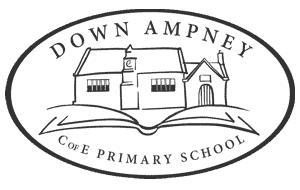
The school promotes pupils’ spiritual, moral, social and cultural development well.
Ofsted
Music
Our vision for music
The vision for Music in the school is that all children develop a sense of wonder and curiosity about music in the world they live in; both modern and historical. We offer children a safe space for exploration of their ideas about music and how this can be translated into their own compositions. Children have opportunities to gain knowledge of musical cultures and repertoires, as well as ensuring that, through music, children experience moments of powerful emotional impact.
We aim for children to become better at performing, better at composing and better at evaluating and listening.
Intent
The Music curriculum is planned following the National Curriculum, the Model Music Curriculum and the Early Years Foundation Stage Framework through Development Matters. We follow the Sing Up scheme of work, which ensures a broad and diverse range of repertoire, approaches and musical traditions. Our mastery approach to music connects the interrelated strands of singing, playing, improvising, composing, listening and appraising.
Children make progress in their musical learning by mastering technical development; controlling sound through singing and instruments, developing their constructive knowledge of the elements of music; pitch, pulse and the components of composition and their appreciation and understanding of music and its history.
After school clubs, lunchtime music ensembles, external visitors and out of school experiences are planned to enrich children’s experiences of music and musical appreciation.
Throughout our music units, connections are made using previously learnt vocabulary and skills and how they relate to new musical knowledge and experiences.
We follow a 2 year rolling programme for music where children cover the appropriate musical learning for their year group, revision of concepts, repetition and the regular practising of skills that are essential for musical learning.
Our pupil premium grant enables us to ensure that no child is excluded from a range of musical experiences based on family income. We support families to take advantage of musical grants to explore and develop their talents.
Our practical approach to teaching and learning ensures that all children are engaged and supported. Musical instruments are available for all and flexible grouping ensures that, through peer support, all children reach their potential. More able children are challenged to use their knowledge of reading notation etc…and apply it to their own compositions and understanding of new genres of music.
Music lessons provide an opportunity for children to
express themselves freely, forming their own opinions about the music they listen to and allow them to develop their thoughts on how they feel about a particular piece of music. Children enjoy listening to and performing music from
different faiths and cultures from around the world and learn how music is used in other cultures and faiths.
Implementation
Subject leaders and music teachers attend county network training through Gloucestershire Music, as well as bespoke Music Works workshops focusing on both skills and implementation of the music curriculum.
A dedicated class session of at least 45 minutes of musical teaching every week and small steps of learning within each unit, with a clear sequence of progression, allows children to be secure before moving onto new content. Our long-term skills progression ensures children have the time to practise and revisit skills to gain procedural fluency. The focus of our musical teaching is on developing children’s long term memory to help develop automaticity in key skills, such as decoding rhythm patterns. Diversity in music is promoted through the exploration of artists and music from a range of backgrounds, cultures and faiths.
Relevant key words, both new and known, are shared and meanings explored in every lesson and children are encouraged to express their ideas using technical vocabulary. Children are able to give their personal reactions to a piece of music, justifying their decisions using musical terminology.
Careful questioning is built into every lesson to encourage enquiry into musical genres, including the choices made by composters such as use of instruments and the effect they have on the listener. Both teacher modelling and example compositions support children to develop independence and confidence in their musical progression.
Children’s experience of music is enriched by visits from external visitors such as concert pianists and musical experts in specific genres as well as trips to enhance their musical appreciation.
Fluency in reading musical notation begins with drawing and following patterns of rhythms and develops through small steps to children being able to read basic notation in KS2, moving onto reading this notation on a stave.
Pupils’ difficulties and misconceptions are identified through immediate same day formative and periodic summative assessment. Immediate intervention in lessons is through repeated teacher modelling and demonstration. Summative assessment of music is undertaken through “snapshots”, where children use the same piece of music throughout the year to build new skills onto. Group performances are recorded for assessment purposes and for children to reflect on their own progress. Floorbooks provide an opportunity for children to talk about their learning around composers, new skills learnt and their progress made.
Impact
Pupils enjoy music lessons and are enthusiastic about the opportunities to play a range of instruments. Music clubs have a high uptake and children have taken up music lessons following experience days.
Pupils demonstrate a clear progression in their musical abilities, regardless of their starting points. They exhibit resilience, perseverance, and a growth mindset. Pupils have a positive attitude towards music and an appreciation of musical genres and artists outside of their current musical experiences. Children at Down Ampney make more music, think more musically and become more musical.

